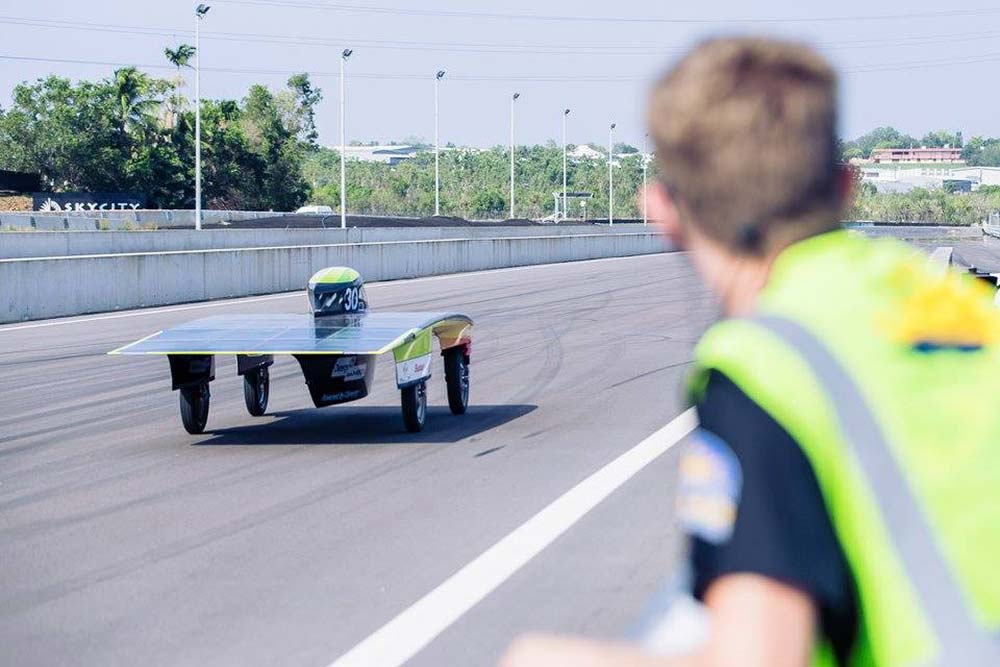
Image: Clenergy TeamArrow
When you think of electric vehicles, one of the first questions that springs to mind is where are the chargepoint stations?
Well with the new world-first solar electric cars that are set to be manufactured in Brisbane, the worry for finding a station to charge the vehicle will soon be put to rest.
And the company that’s at the forefront of this new tech is a solar racing team called Clenergy ‘Team Arrow’, which has a long history of competing in Australia’s World Solar Challenge and aims to be the first Australian company to manufacture and sell electric solar vehicles.
That’s why the Economic Development Queensland is granting the company access to the Eagle Farm site and workshop facilities at Macarthur Avenue in Brisbane.
Queensland Minister for Energy Mark Bailey said the Palaszczuk government is a strong advocate for renewable energy and a cleaner, greener energy future.
“Clenergy TeamArrow is one of the most successful Australian solar racing teams of the Bridgestone World Solar Challenge and I’m excited about this new innovation and design hub here in Brisbane,” Mr Bailey said.
Clenergy Team Arrow’s Cameron Tuesley said his company aims to be the first Australian company to manufacture and sell solar electric vehicles.
“We are proud to be working with energy partners such as Clenergy and Tritium to showcase Australian innovation, science and renewable energy technology to the world,” Mr Tuesley said.
Clenergy TeamArrow is also using the 2017 Bridgestone World Solar Challenge as a platform to launch the design of its ‘race’ version of its ‘Cruiser Class’ vehicle, which the government described as ‘sleek, hi-tech and aerodynamic’.
“What better stage to launch than the 2017 Bridgestone World Solar Challenge? Our ‘race’ version of our car of the future will also be the first road-registered solar vehicle to compete in the Challenge,” Mr Tuesley said.
The Bridgestone World Solar Challenge is the world’s foremost innovation challenge with teams from around the world vying to become the first to deliver sustainable powered electric vehicles.
Last year’s event in Darwin received 47 entries from 25 countries with 42 teams taking to the start line. The event had 1,500 participants and a global audience of about 25 million.
According to the state government, the event generated more than 400 industry partnerships across energy, automotive, engineering, financial, material sciences and ICT sectors.





